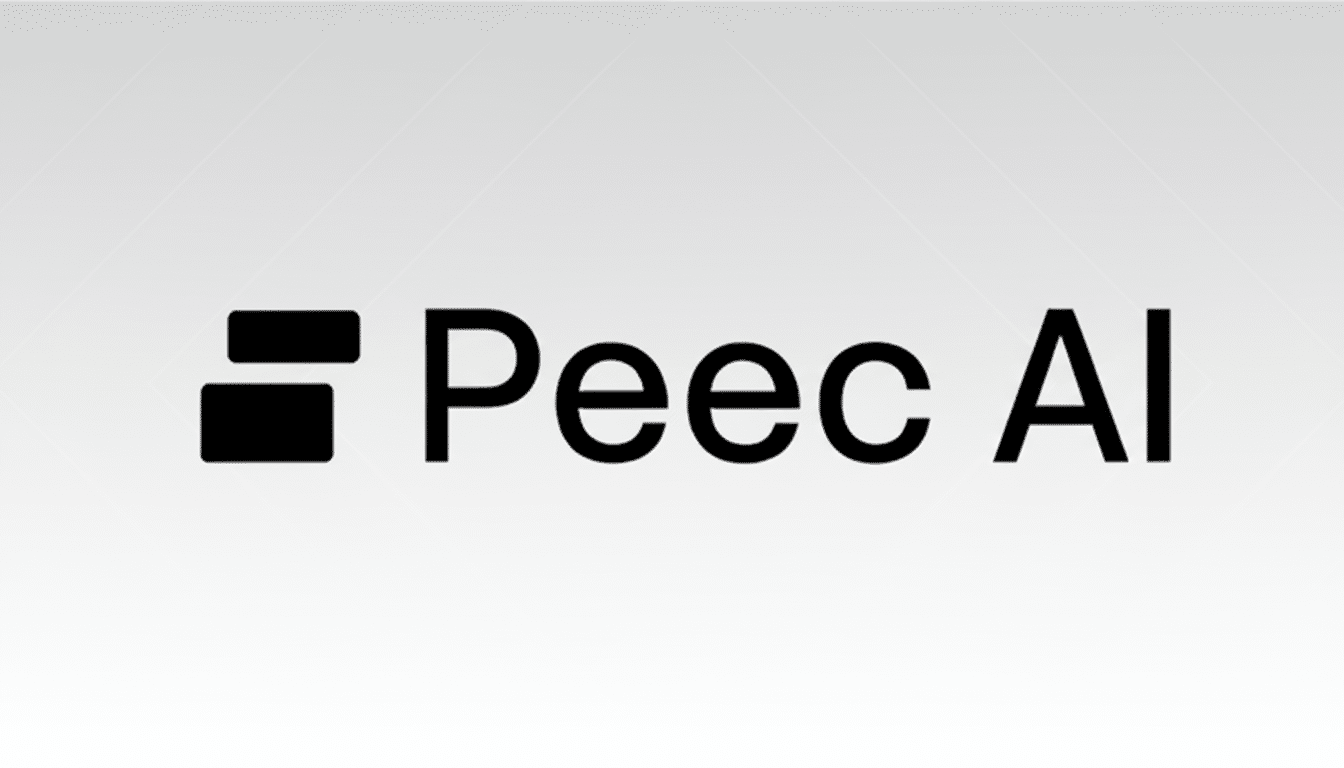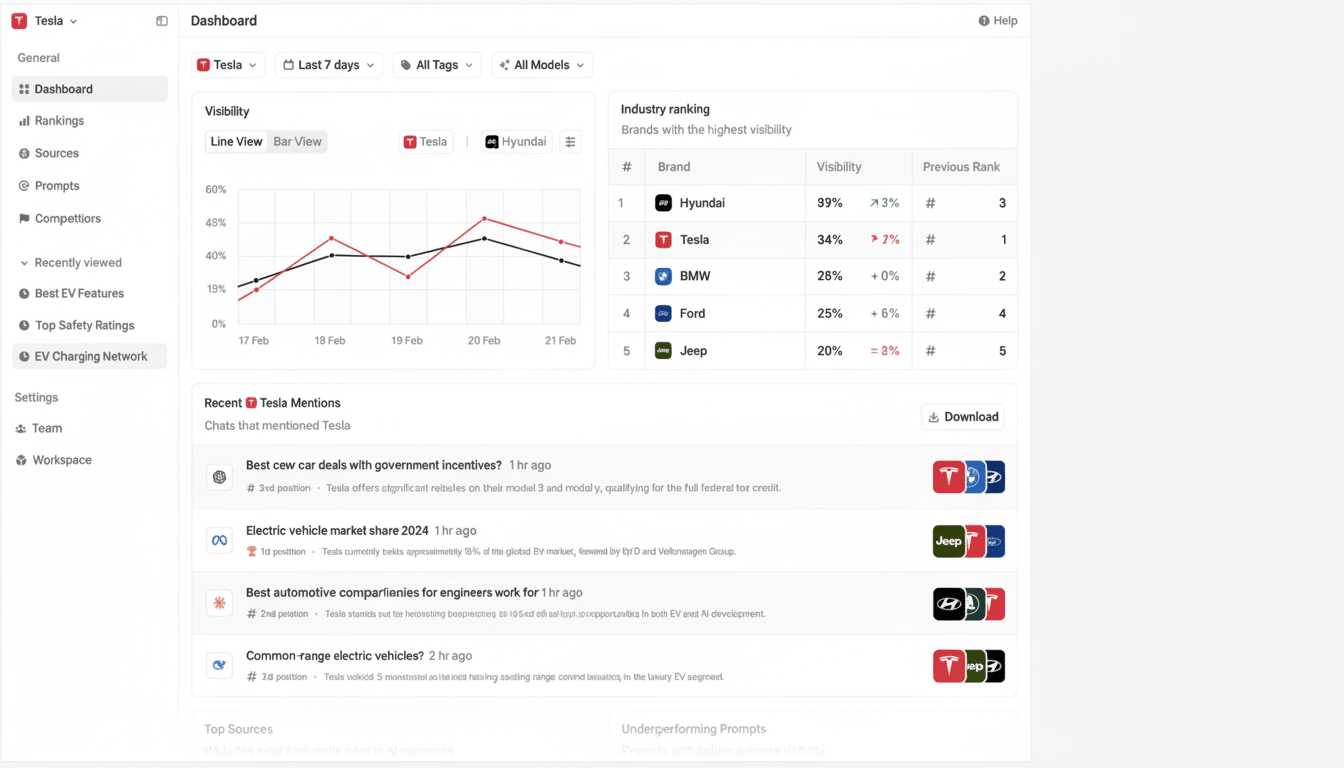Consumers are increasingly asking ChatGPT for product advice instead of typing queries into Google, and brands are racing to find their way into answers spit out by AI. Betting on that shift, Peec AI, a Berlin-based startup working to help marketing teams measure how they show up across conversational search, has closed $21 million in new funding.
AI search is rewriting product discovery behaviors
OpenAI announced that ChatGPT crossed 100 million weekly active users, indicating that large language models are a major avenue for gathering knowledge. Traffic analysts at Similarweb have charted the chatbot’s monthly visits far into the billions, with Google still commanding somewhere in the neighborhood of 90% of traditional web search traffic, according to StatCounter. But what is implied here isn’t a sudden death of search engines so much as the rapid re-routing of the earliest discovery moments to AI assistants — particularly for those uncertain, recommendation-laden queries such as “best CRM for a startup” or “top hotels for a family in Lisbon.”

For marketers, that change shatters long-held SEO playbooks. Instead of ten blue links, AI answers aggregate sources, evaluate sentiment, and deliver a single conversational suggestion. Marketing and sales are some of the top functions experimenting with it, according to McKinsey’s 2024 State of AI report — highlighting one reason why brands want visibility and control in this brand-new decision funnel.
Inside Peec AI’s GEO playbook for conversational search
During the coronavirus pandemic, when numerous people asked whether it was safe to travel to Italy or Greece despite the health crisis, Peec AI entered. The company positions itself as a Generative Engine Optimization platform — GEO for short — aimed at monitoring how a brand appears in AI-generated answers and suggesting moves that strengthen this type of performance. Rather than center around keywords, Peec’s dashboard is structured with prompts: the questions a brand wants to win, such as “best project management tool for agencies” and “recommended eco-friendly detergents.”
The product charts against three pillars, plus a fourth layer focused on source influence:
- Visibility: does the brand appear and with what frequency.
- Ranking: prominence and context.
- Sentiment: whether the vehicle presenting the brand is positioning it in a positive, neutral, or negative light.
- Source influence: which articles, forums, or reviews most influence AI answers for a given prompt.
Early findings can be counterintuitive: mentions in marquee outlets aren’t always king; niche reviews and forum threads that echo precisely the language of the prompt frequently punch above their weight class.
Peec writes these insights into actionable steps. If you’re trying to rank for “best CRMs for fast-growing companies,” the system might identify that Reddit threads on r/CRM and more recent comparison posts with intent-matching headlines are over-exerting influence on model outputs, driving PR, content, and community efforts accordingly.
Under the hood, Peec says it developed a proprietary data pipeline that slurps up AI query data at scale and distills it for commerce- and brand-relevant intent. That curation makes a difference: AI tools manage everything from math help to travel planning, and signal matters when you optimize for purchase-driven queries.
Funding and momentum as conversational search expands
The $21 million Series A is led by European firm Singular, alongside Antler, Combination VC, Identity.vc, and S20. It comes on the heels of a seed round earlier this year and, according to the company, a more than tripling of its valuation to above $100 million.

Traction has been strong: Peec says the company now generates over $4 million in annual recurring revenue just 10 months after launch and counts 1,300 companies and agencies as customers — with around 300 new users added each month.
Their clients are a mix of industries — from media and luxury to travel and developer tools — with customers including Axel Springer, Chanel, n8n, ElevenLabs, and TUI.
The startup aims to add around 40 employees over the next six months, mostly in Berlin. The startup was co-founded by CEO Marius Meiners, CTO Tobias Siwonia, and CRO Daniel Drabo when the trio met during an Antler cohort. Pricing is based on tracked prompts, with starting levels for the entry tier that offers free trials and an enterprise plan targeted at larger portfolios.
Racing a fast-growing category of AI search tools
The GEO market is hot. New York-based Profound Marketing and Austria’s OtterlyAI are some of the early entrants, while established SEO suites are bolting on AI-answer tracking to their dashboards. Peec is betting that its differentiator is a prompt-centric UX and source attribution that directly ties influence back to actions marketers can take this week — not next quarter.
A technique that stands out from Peec’s data: ground content in the exact phrasing of consumer prompts, and sow reliable, intent-aligned sources. In practice, that could mean comparison pages tailored to replicate the user’s language and participating in expert forums where LLMs often justify their recommendations. That means shifting from just ranking around head terms to winning the conversation.
What this shift to GEO and AI answers means for brands
As a result, the budget lines that were poured into SEO and paid search are starting to include GEO. Prompt-level measurement, sentiment tracking, and mapping influence across third parties top marketers’ wish lists. The playbook is moving toward three habits:
- Generating content that answers the precise question.
- Developing high-signal citations where models seek proof.
- Closing the loop with perpetual testing as model behavior shifts.
Search isn’t going away: discovery is just broadening. As consumers seek generative answers for direction, tools that quantify — and cure — AI visibility are becoming table stakes. Peec’s funding perhaps points to investors betting that the next “wave” of growth will only go to those brands that learn how to rank where the conversation is beginning now.

